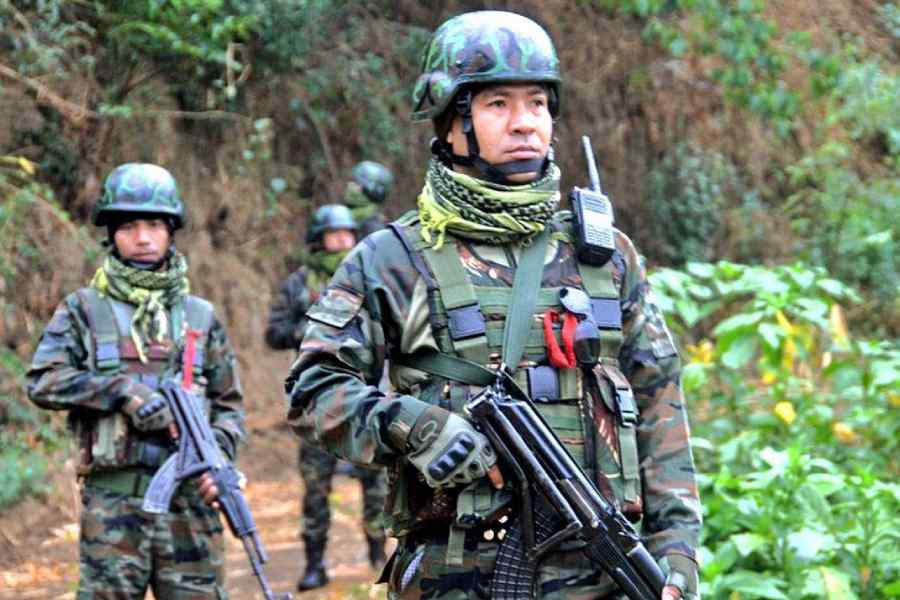Manipur continues to live in a nightmare. The savagely bitter ethnic conflict between its Kuki-Zo and Meitei communities that broke out on May 3 at the Torbung village in Churachandpur district rampages on. All this while, the State as an institution has been progressively withering away before everybody’s eyes, pathetically unable to end the carnage. The conflict is in its seventh month now, but the law is still out of the government’s grip and remains in the hands of virtually anybody with some potential to create menace.
If the State in the local context of Manipur has lost its plot and is clueless about the way forward, the Union government does not seem to be treating the crisis as anything urgent. At last count, a total of about 60,000 Central forces personnel had been flown into the state; together with those already stationed here as well as the state’s own constabularies this would easily bring up the total to a lakh pair of boots on the ground. Yet, things are still allowed to drift. The pattern has been that every time some semblance of peace returns, sporadic violence by miscreants in one or the other pocket causes dangerous flare-ups, taking the situation back to square one.
Many individuals in the Central forces posted at what are termed buffer zones along the foothills have confided to visiting friends that given the order, they can end these faceoffs at different places in just two days or so. Why then have such instructions not been given yet? Is it deemed enough to just keep the two warring communities apart and not think of resolving the issue in the way that a State is mandated to?
Again, why has Max Weber’s idea of the State as the holder of monopoly over “legitimate violence” not been asserted yet? This is especially pertinent. There are over 4,000 lethal arms which mobs looted from various police stations and gun shops that are still in the hands of the public even after some seizures and voluntary surrenders. From pictures surfacing on social media, there are also many sophisticated arms other than those looted flowing into the state from across the border. Is it then still not time for the State to use its coercive power to recover these arms?
For the State’s monopoly over potential violence to gain legitimacy, it has to first convince people that the coercive means in its hands are for the security of the State and its people. Quite obviously, among many other failures, what the Manipur crisis has demonstrated is a complete disappearance of this public faith, leading even ordinary people to conclude that it is only they and not the State who can guarantee themselves protection.
Although it is incumbent upon the State to always ensure that the understanding that only its security organs can possess lethal weapons reaches all, the best time for it to have asserted this tough message was within the first few days of the outbreak of the crisis. If it had clamped down with an iron fist at the time, using the State’s ‘legitimate violence’, the fire may have been doused before it spread. Emergency means such as president’s rule under Article 356, too, would have been welcome then.
The situation has been allowed to slip too far. The resultant polarisation between the warring parties is now acute and bitter, and the longer this conflict remains this bitterness too is predicted to grow. Today, any action of the government, Central or state, will be seen as partisan by one side or the other. Even suggestions of whether or not to impose president’s rule or whether or not to replace the chief minister, N. Biren Singh, have come to be interpreted as victory or defeat for one or the other party and no longer as a means to usher in normalcy.
However, this conflict-binary must not be allowed to paralyse policy measures. It is late but never too late to take tough decisions to bring back the law where it belongs — in the State’s grip.
Pradip Phanjoubam is editor, Imphal Review of Arts and Politics











